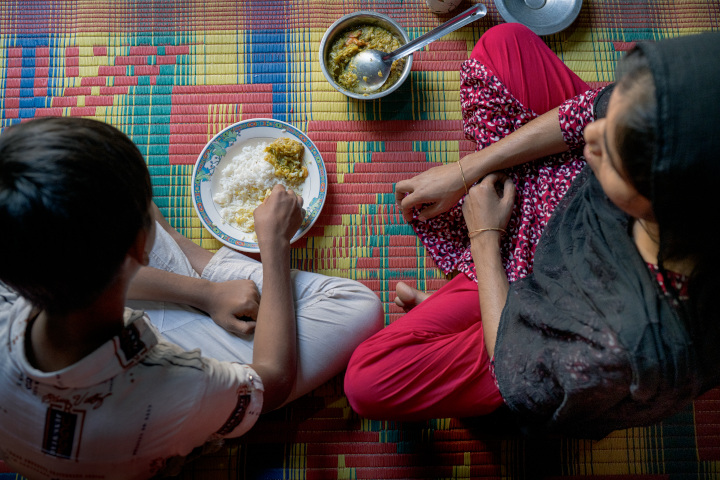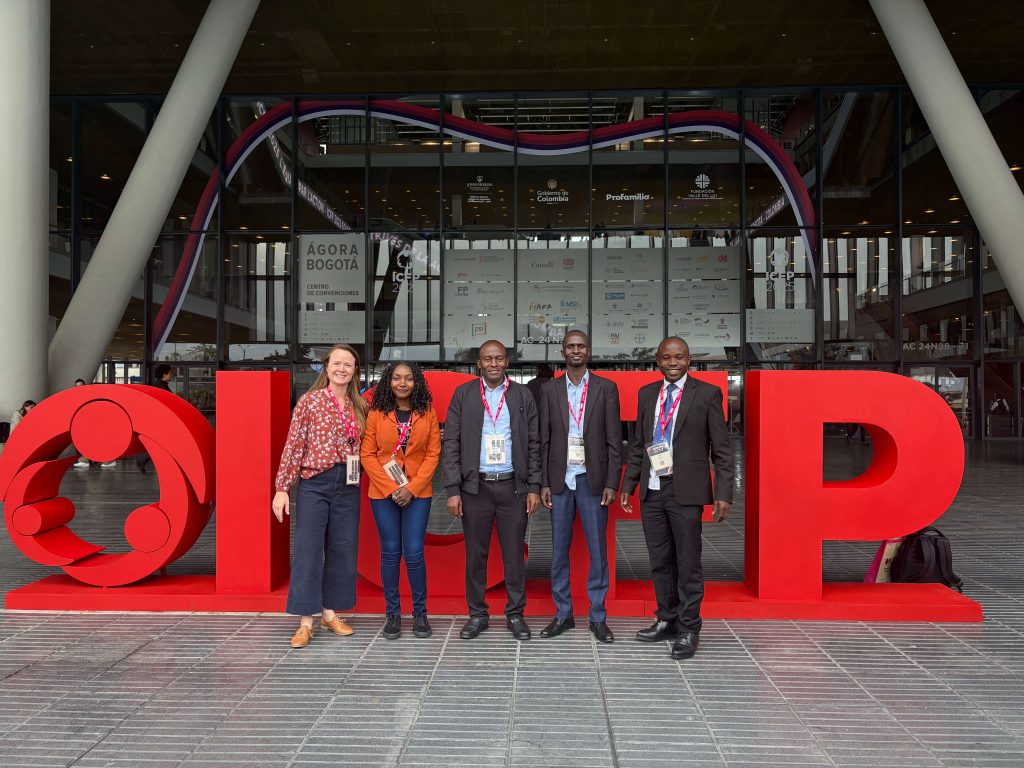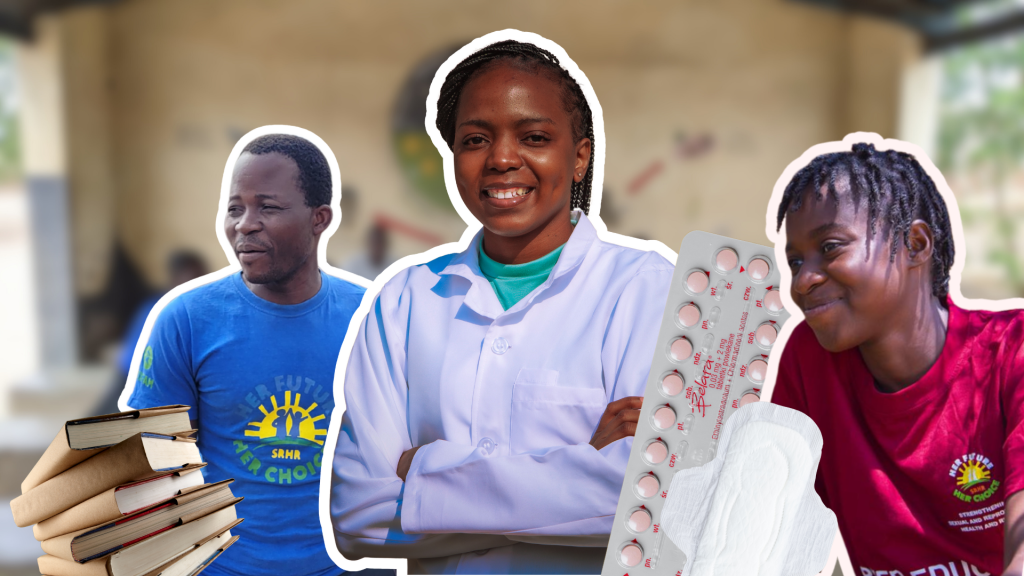Who Really Keeps the World Running? The Power of Care Advocacy in Asia
Every day, millions of women cook, clean, and care for others—without being paid, recognised, or counted in official economic growth statistics. Imagine if all of that care work stopped. What would happen to our families, our communities, our economies?
For decades, global economic systems, shaped by capitalism and patriarchy, have systematically undervalued care work. It’s been excluded from GDP calculations, left out of labour statistics, and dismissed as “women’s responsibility” or a labour of love. In response, feminists have worked tirelessly to expose the reality that care work is the invisible engine keeping our societies running.
The Care Economy: A $11 Trillion Job that No One Pays For
Globally, women perform 76.2 per cent of total hours of unpaid care work, more than three times as much unpaid care work as men. That number rises to 80% of all unpaid care work in Asia and the Pacific. From childcare and eldercare to cooking, cleaning, and managing households, this labour is crucial—but rarely acknowledged or supported.
According to a 2018 study by the International Labour Organization (ILO), women’s unpaid care work is worth $15 trillion CAD, or 9% of global GDP - nearly double the value of the global agriculture sector. Despite this massive contribution, care work remains unpaid, underpaid, or undervalued. Even when it is monetized, it is often relegated to low-wage, insecure, and precarious jobs, marked by exploitative conditions and a lack of labour protections.
This systemic undervaluation reinforces gender inequality. Women are expected to juggle paid and unpaid labour, often at the expense of their economic independence, education, or political participation. When care work is remunerated, it is rewarded significantly less than other professions. Paid care work, such as domestic workers, personal support workers, childcare, healthcare and education professionals remain underpaid. This wage difference not only undermines the economic value of “women's work” but further increases gender inequality by undervaluing women's contributions.
Oxfam Asia: Advocating for Change
The Oxfam Asia Regional Platform has been working to recognize, redistribute, and reduce care work and ensure care workers are represented across the region. Oxfam Asia is shifting how societies view and value care work through research, advocacy, and partnerships.
To make space for women’s rights organizations, domestic workers unions and feminist coalitions to advocate for changes in government policies and business standards to improve working conditions and rights for care workers, Oxfam in Asia, and Oxfam Canada with support from the Gates Foundation, collaborated on a project called “Deepening global and regional advocacy for Care work”. The goal: to generate evidence, support grassroots movements, and influence policies and governments to create a more inclusive and caring economy. As part of this initiative, Oxfam distributed grants to six organizations across Asia to carry out projects that advance critical social, economic, climate, and gender policies in the care sector. Here’s a closer look at their inspiring work.
Chambal Media – हेकाम आहें (This is Work)
In India, 113 million poor adolescent girls are considered primary care providers in their families while their mothers work outside the home in low-paid care and domestic work. Because of the deeply rooted notion that “care work is women's work,” care responsibilities automatically fall on the eldest daughter, even if it means neglecting her studies. Chambal Media explores this inter-generational burden of care.
To better understand the struggles of care workers and amplify their voices, the Gender Lab and Chambal Media partnered to develop a film on caregivers. Chambal Media engaged with various care workers to get a broad perspective on how care impacts women, their daughters, and the rest of their families. Six screenings of the documentary were organized for different audiences, sparking important discussions about this often invisible and undervalued work. The film helped amplify the voices of care workers, especially women and girls, and sparked important conversations about the need for better recognition and a fairer distribution of care work.
Asia Monitor Resource Centre (AMRC) - Towards Transformative Care Policies Through Inclusive and Better Maternity Protection for Agri-food Women Workers in Southeast Asia
AMRC is a non-governmental organization (NGO) that focuses on Asian labour issues. It works to support a democratic and independent labour movement in Asia, promoting the respect of labour rights, gender equality, and active workers’ participation in work-related issues. The organisation has been a relentless advocate for social and maternity protection across the ASEAN region. Recognising the vulnerabilities faced by women workers in the agri-food sector, AMRC launched a project to amplify the voices of female agri-food workers and push for transformative policies. Through the grant, they aimed to influence entities like the ASEAN Committee on Women (ACW) to prioritize maternity protection for agri-food workers and create a fairer future for millions of women. At the World Social Forum 2024, AMRC convened 200 participants to discuss maternity protection for informal workers and put out a joint statement endorsed by 93 organizations and 43 individuals. From local training sessions to the ASEAN People’s Forum, AMRC’s efforts have created a unified movement for transformative gender social protection.
Centre for Social Research and Development (CSRD) - Silent Voice – Silent Works of Silent Women Informal Waste Pickers
In Vietnam, especially in Hue, the belief that household chores are mainly women’s responsibility is common, particularly for women working in waste collection. While several social protection policies have been introduced by the government nationally, the implementation at the local level remains weak. To address this, CSRD partnered with the women’s union of An Dhong ward to launch a research project with the bottle pickers community in Hue, captured their realities through film. The first study highlighted the lack of implementation of local and national gender equality policies and existing legal frameworks at the ward level and the second study, Feminist Participatory Action Research (FPAR), worked with 15 women aged 35 to 65 to develop an adult learning strategy for women in the community. Based on these findings, the project held group discussions and activities that increased women’s understanding of gender equality and how to share household responsibilities with their partners. A key result of the project was the creation of the "Husbands Care for Wives" club, which initially faced some resistance from husbands but ultimately encouraged them to become more involved in household chores and support their wives.
International Domestic Workers Federation (IDWF) - Demystifying Care in Asia for Domestic Workers: Care Policy Mapping
Oxfam partnered with the International Domestic Workers Federation to do a policy mapping exercise in 12 countries in Asia, namely, Hong Kong, Bangladesh, Indonesia, Malaysia, Philippines, South Korea, Thailand, Taiwan, India, Cambodia, Nepal and Sri Lanka. With the Care Advocacy Fund grant IDWF produced a regional assessment of the care policy landscape in Asia, identifying care laws and policies, existing infrastructure in these countries, current care needs, and a demographic picture of migrant care workers and the burden of care being borne by these workers. This policy mapping exercise aimed to find concrete evidence on the legal status and associated social and labour protections afforded to migrant domestic workers. The research findings were used in multiple national, regional, and global platforms to advocate for migrant domestic workers’ rights. The Care Policy Mapping data also played a key role at the 2024 International Labour Conference, where IDWF members used it to advocate for migrant domestic workers being recognized as care workers in the final document, with rights to collective bargaining and freedom of association.
Homenet Philippines – Tying Up Care Advocacy with Maternity Protection Advocacy for Women in the Informal Economy Through Community Action
In the Philippines, nearly half of all women are full-time homemakers, often taking on informal, unstable jobs close to home so they can still manage household and caregiving duties. This happens because many still believe a mother's work is in the home, making it hard for women to balance work and family life. Moreover, pregnant women are often expected to leave their jobs to focus on motherhood, with little help from their husbands or support from community services. To improve this, Homenet Philippines (HP), a coalition of 28 organizations advocating for maternity protection and recognition for care work in the informal economy, conducted research with the Asian Roundtable for Social Protection (AROSP) Network. HP mobilized communities, especially targeting men and the government, to increase community understanding of the issue and government interest in adding maternity protection to their agenda. Through a year-long local campaign and community mobilization, Homenet Philippines was able to influence local governance councils to include the 5Rs Framework of Unpaid Care and Domestic Work on their agendas and draft laws to support it. They also mobilized men’s groups on issues of care work and gender-based violence.



